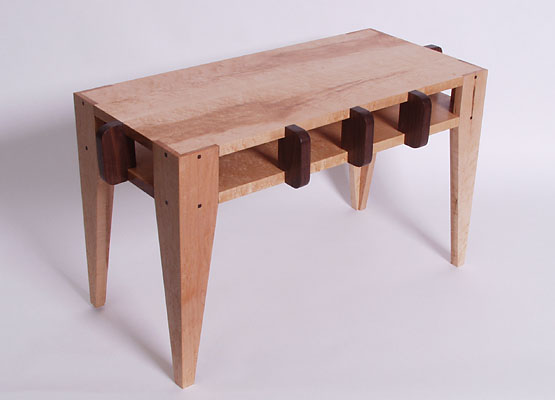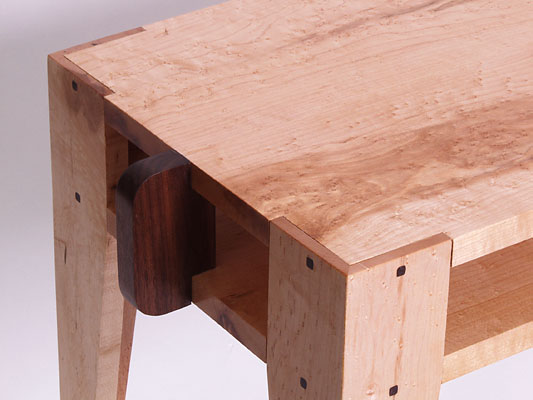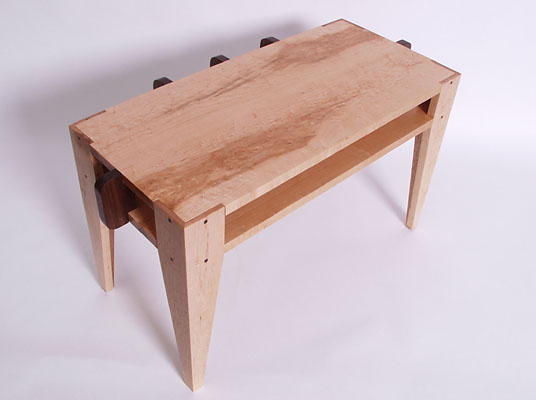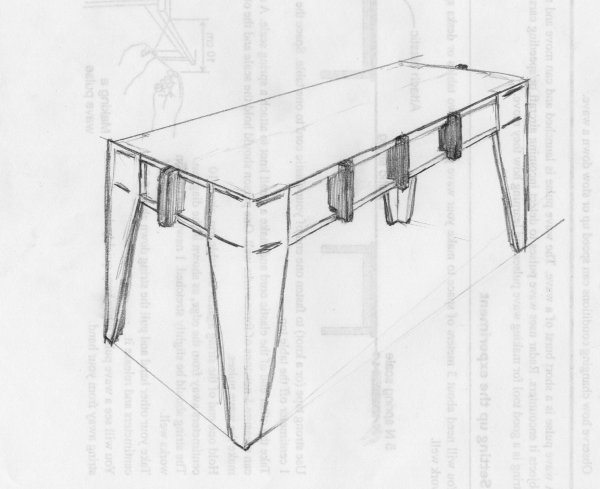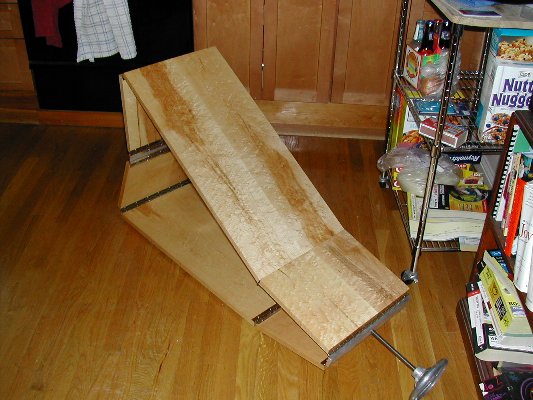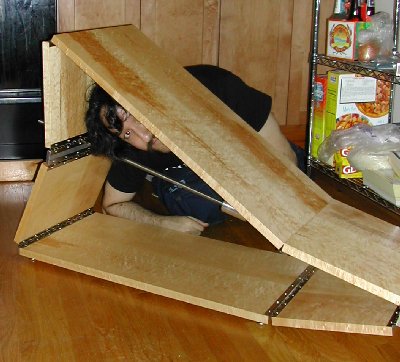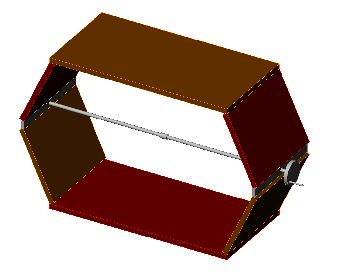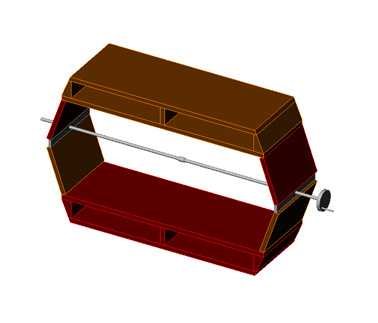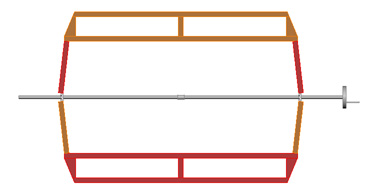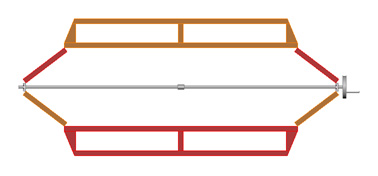Updated: January 25, 2005:
It's finally done! Here's what it looks like (a lot like the rendering below,
no?):
And here's a closeup of one of the walnut fins/keys (what to call them?) that
keeps music from sliding off the shelf:
Another view:
Updated: September 29, 2004:
New design that uses the two large planks of wood, more or less as they are:
What do you think?
Updated: June 10, 2004:
If you're ever looking for a perfect example of why engineers build
models before producing full-scale designs, this is it.
As you can see, the bench design isn't stable at all - it just flops over
into a beautiful, but most unbench-like heap of wood and metal.
It's back to the drawing board, and, more importantly, the modeling board.
As Matt points out, the original design is lacking in the triangle department,
leading to its instability - I daresay triangles will make an appearance in
the new design.
Updated: October 7, 2003:
A few weeks ago, Rif and I spent some time working on and thinking about
his piano bench. We'd bought a reasonable amount of
birdseye maple
and started to glue it up into wider boards. We realized, however, that we
hadn't bought enough to complete the project. It's quite expensive, and we were
also falling a bit behind on actually finishing the project (not that we
have a deadline), so we decided to refine and simplify the design, as shown
above. All the boards are glued up now, and most of the hardware has been
purchased, so there are only a few more things to do:
- plane the wood flat
- cut the pieces to length
- cut, drill and tap the side pieces (aluminum)
- finish the wood (with shellac, perhaps?)
- assemble
I've designed an adjustable piano bench for my friend Rif. It's not built
yet, but will be soon.
Some notable features:
- it adjusts via the crank and threaded rods
- it has storage in the seat and base
- it's invertible!
- as currently designed, it's 21 inches at its lowest, 27 at its tallest
Here's the bench adjusted to its highest and lowest positions:
